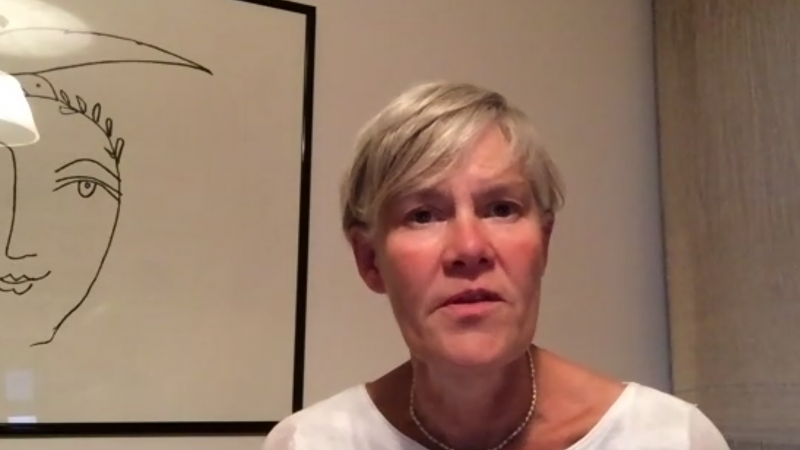
Kate Green has set out her priorities for education and argued that Labour must “develop and re-energise the role of schools, colleges and universities as hubs of their community”.
Participating at an event at Labour’s online conference ‘Connected‘ this evening, the Shadow Education Secretary discussed education both during and beyond Covid as part of a panel hosted by the Socialist Educational Association.
Green held back from setting out a manifesto, but told the meeting that she “did want to give you a sense of some of the principles that I’ve been thinking about… and to give a flavour of the kind of vision I’ve perhaps got”.
She argued that educational institutions have an important and central part to play in communities, but said that the country has “lost that community role that schools, colleges and universities can and must play”.
She added: “Parents do think of schools as the centre of communities… But I think we should be systemising and structuring and resourcing schools, colleges and universities to be that.”
The Shadow Education Secretary emphasised the importance of early years education. She said the market is in “huge trouble” and that Labour would need to “re-energise” previous commitments made in the 2019 general election manifesto.
At the last election, the Labour Party’s pledges included plans that would have seen all children between the ages of two and four entitled to 30 hours of free preschool education per week within five years.
Labour’s education spokesperson also stressed the need for a school curriculum that is “relevant for life and inclusive”. She argued that this means an emphasis on equality and on meeting the needs of children with special educational needs.
She added: “And it means taking on more of the need to address the demands of the Black curriculum campaigners and ensure that everyone feels that their culture and identity is recognised, celebrated and taught in school.”
On post-18 education, the Shadow Education Secretary said that she wants a “holistic approach”. She added: “The further education/higher education divide is I think unhelpful.
“And I also believe that Labour’s lifelong learning commission came up with so many really excellent ideas that I’m very keen we should drive forward.”
Labour proposed a National Education Service (NES) at the last election, which would have offered education ‘from cradle to grave’, free at the point of use and incorporating all forms of education from early years through to adult learning.
Under the plans, adults would have been able to study for free over six years towards an undergraduate degree and for vocational equivalents such as higher national certificates and diplomas, foundation degrees, certificates and diplomas.
As part of the last leadership’s promise to deliver the service, Labour launched a lifelong learning commission in 2019. It reported in November 2019 with a plan for collaboration across all education areas.
Asked about the proposed NES: “There’s a lot of work to be done to fill out what it looks like, what the detail of it is. I think everybody would acknowledge we didn’t have the time to do that before we were bounced into the early election…
“But of course we want a guarantee, if you like, a national offer for everyone. That’s not to say that we don’t want to ensure that that offer can’t be tailored… and it also is not to say that we don’t want local accountability.”
Asked about academies and free schools at the event this evening, she said: “I don’t want to spend the whole of the first term… messing around just with structures. I want to get to the equality of what’s going on in class.
The Labour Shadow Education Secretary went on to describe the Conservative free school experiment as a “vanity project” and argued that it had not added any value to the education system.
If a local authority currently wants to open a new school in its area, it can only legally open one as a free school. Free schools have no oversight from local councils or communities and can set their own pay and conditions for staff.
Green said: “On scrambling successful schools for the sake of having perfect structures, that isn’t where I’m going to start. But I think we want to start with a different set of values and objectives that aren’t about pitching schools into a competitive situation.”
Green took up the frontbench position as Shadow Education Secretary earlier this year after Labour leader Keir Starmer sacked Rebecca Long-Bailey from the shadow cabinet in April.
Today’s event formed part of Labour’s online conference. The usual conference was cancelled earlier this year due to Covid. The virtual replacement is running events for Labour members over the next few days through to September 22nd.




More from LabourList
Government announce SEND reform in schools white paper
SPONSORED: ‘Industrial hemp and the challenge of turning Labour’s priorities into practice’
‘A day is a long time in politics, so we need ‘action this day’’